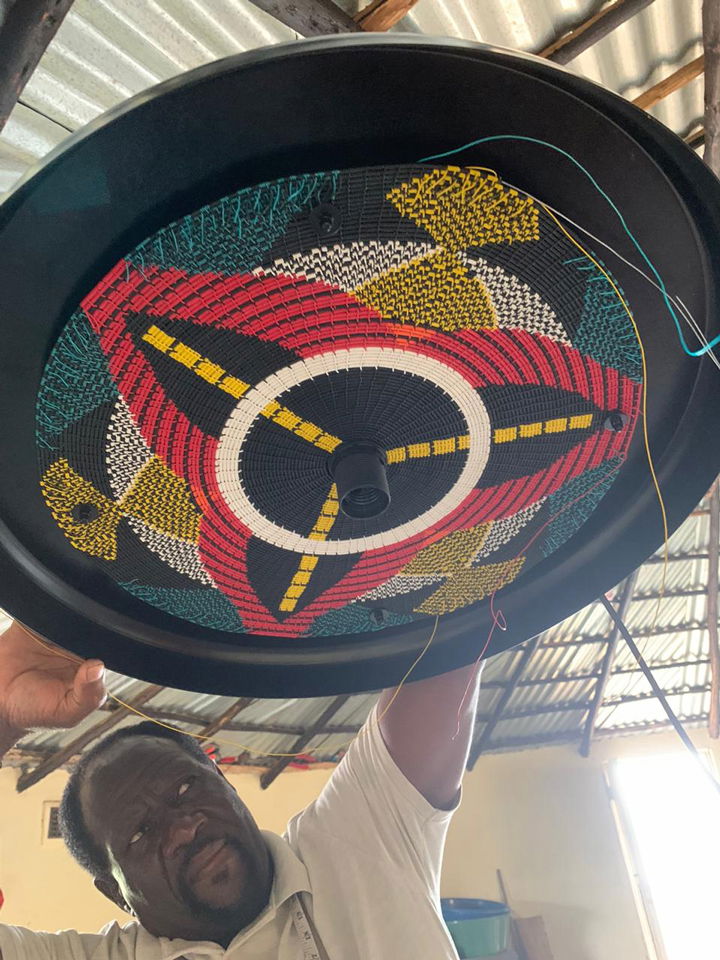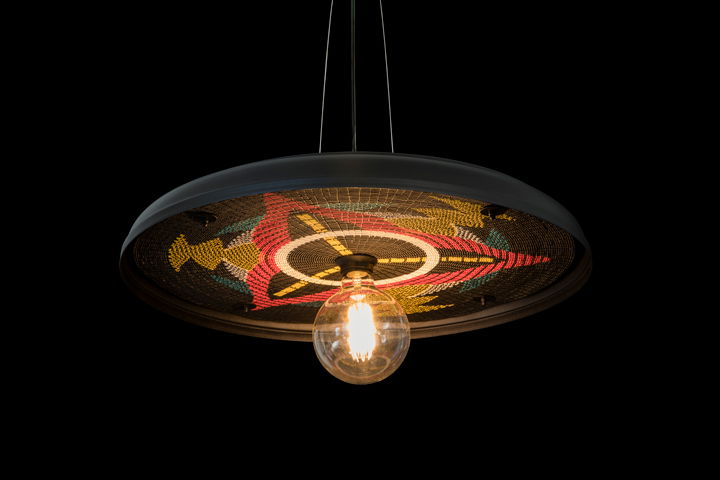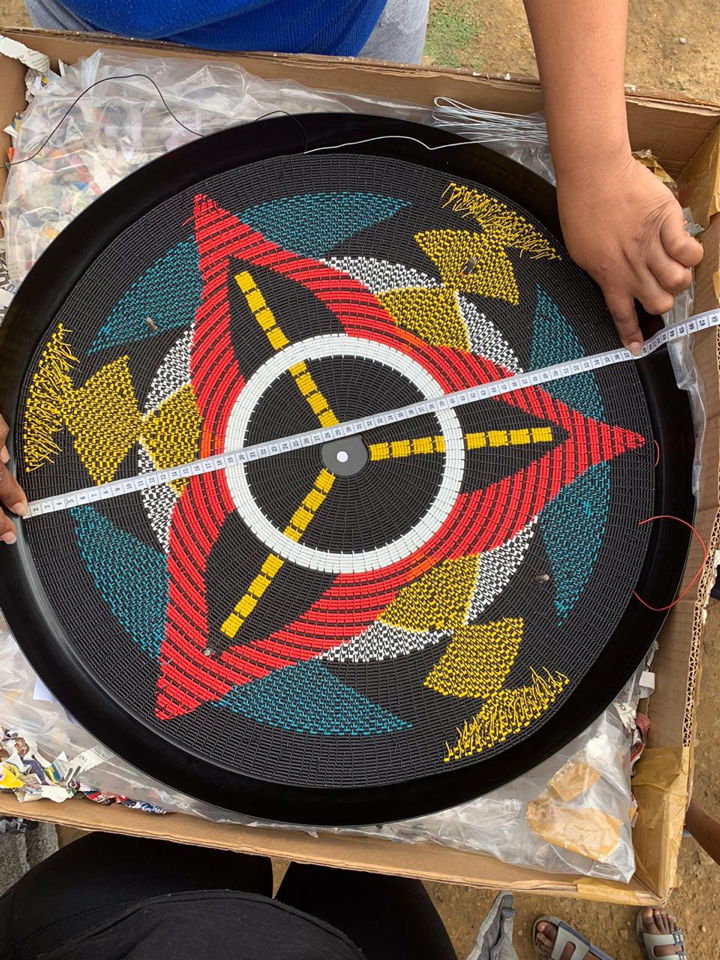Traditional Zulu basket weaver, Alfred Ntuli, can’t quite explain how the designs of his intricately patterned pots, baskets and trays come about in his mind – save to liken his process, to entering into a dream.
“You know how when you dream and you sometimes see things you’ve never physically seen before? It’s the same way when I start a piece – and when I’m done with it, I too am amazed by it,” he says in low, raspy chuckle.
Born and raised in Kwa Maphumulo – a town in KwaZulu-Natal – the 65 year-old has spent more than half of his life, 35 years to be exact, crafting vibrant and boldly designed traditional Zulu baskets and pots (called Ukhamba), using a material that outsiders couldn’t dare imagine – telephone wire.

“Back in 1976, I used to work with a man named Ernest Makwakwa… he was the one to first show me the different kinds of patterns one could make through craft designs. He has long since passed away, but he first introduced me to creating patterned crafts. When I first saw the patterns, I said to myself, ‘This is nice!’. And naturally, I myself had always loved crafts and working with my hands,” Ntuli recalls.
But it would only be 10 years later when he met pioneer weavers Bheki Dlamini and the late Elliot Mkhize when he was then introduced to wire weaving. “I hadn’t really been making money from my crafts, until 1986 when I met Dlamini. He helped me sell my products and introduced me to the African Art Centre,” Ntuli goes on. The Centre, based in Durban, was established in 1959 and prides itself in providing local artists and crafters a space and opportunity to market and sell their products, whilst also preserving indigenous craft heritage. And for the then wet-behind-the-ears Ntuli, Dlamini opened a whole new world of possibilities for his crafts.
“He taught me how to sell my products and what times to sell. We all worked together with Mkhize at the Centre.” Starting out, Ntuli said it was hard getting the material itself (wires) and would troll nearby graveyards to get scraps of it. But, eventually, he found a store in Pinetown, KwaZulu-Natal where he could buy both the wire and strings he now uses in his expert workmanship of the pieces. Through his talent and art – the married father of seven, has also travelled to New Mexico to showcase his works at the International Folk Art Festival in 2010, 2012 and 2014.

Those times he now looks back on fondly as being his most lucrative for both his work and finances, which have since been dealt a huge blow, especially due to the Covid-19 pandemic and the subsequent travel restrictions.
Ntuli – who is also a traditional healer – spends anything between 1 week to 3 weeks creating a single piece. And, depending on its size and make, his products can go for anything between R650 – R1 000.

On his latest collaboration, ‘Alfred Lights’ – a new line of contemporary telewire pendants lights done with MashT Design Studio and Elizabeth Joubert from Tin Lab designs – Ntuli says he hopes that they would be seen and admired across the world.
“I take pride in my work and always want it to be nice, clean and neat; and I just want people to know that my work is readily available.” Ntuli closes off with another dream of his – to make money. But not just make money for the sake of it, but to have simple everyday luxuries everyone aspires to having. “There’s still so much I want to do with my life… I want to live comfortably, just like others.
I want to drive a nice car too. But now, I’m poor and hungry. I just want to do the work I love (weaving) like everyone else and live in a nice homes like everyone else.”
